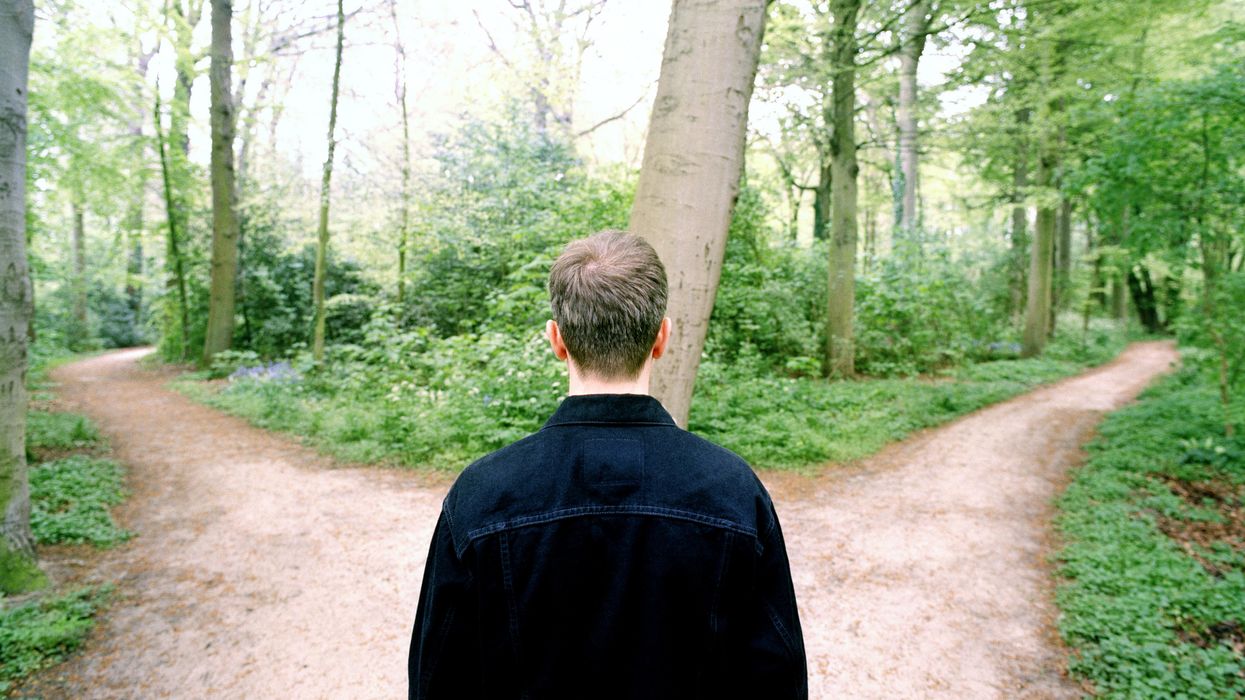Jahner is the founder of The Good Decision Project.
Considering the current conflicted state of affairs in our country, we need to reexamine how we make decisions for ourselves and democracy. As the next election cycle accelerates, we are looking at the most important decision Americans make in their public roles. But how do we arrive at the critical threshold called a vote?
The Good Decision was designed to address both the process of consideration and the binary yes/no of decision execution. The Good Decision Project is a call for collaboration in a collective reframing of our decision discipline in personal lives and democracy.
On our website, the collaboration portion of the project is an ongoing blog hosting a discussion of the nature of the much used and abused word “good.” This forum strives to provide followers with an opportunity to explore and discover how their personal sense of good interacts with today’s challenges and decisions. Every true decision we make has cause and consequence in our homes, communities and beyond.
The bottom-line requirement of The Good Decision asks us to face and accept responsibility for the consequences of our decisions, both positive and negative. Part of the hard truth we deal with in this project is accepting that no decision is perfect and no adult is perfectly innocent. This forum on “good” is open but stays within the guardrails of the ethical admonition “Do no harm.”
The due diligence of the Good Decision proposes four levels of identity found in a democratic society: personal sense of good, community sense of good, public/political sense of good and, finally, sense of service. We provide simple exercises an individual can complete to begin practicing the discipline. For most decisions, the process of The Good Decision can take less than a minute, but more complex decisions that involve local community, work settings and the polls, the process can take weeks or months for a single decision.
The neurological workings of decision-making are more uniform across humanity than one would think. The context, history, content and timing infused into the decision process, however, are infinitely varied. The uniform approach of The Good Decision process is designed to allow for the diversity found in a free democracy. Out of that diversity evolves culture and the vibrant differences that make life at once interesting, creative and profoundly challenging. This diversity is generated by the inherent subjectivity found in the individual and human communities.
We have found we can manage our actions by managing the nature of our subjectivity or unconscious bias – the source of how we initially experience “good.” As an adjective, good is used to convey a summarized sense of positive meaning within us as individuals and among ourselves as a community. After all considerations, including religion, the question is: “Does the individual’s initial sense-of -good align with the true, anticipated and witnessed consequences of the option chosen?” The decision’s consequence and individual accepting upfront responsibility for the option chosen underlies the entire process.
The subtext of The Good Decision is “Living well with the harder truth.” As Al Gore told us regarding the environment so many years ago, the truth of our situation was and still is “inconvenient.” By developing your decision making skills, you can live well with the hard truth. The Good Decision Process is described in detail on the website, but allow me to summarize the four levels of consideration or “pauses.”
Pause I: Sense of good
How do I immediately feel about this option? If you have the time to ask this question, it is not a non-conscious life-or-death emergency. You will live, so take the time to breathe and do a body check. The “gut check” is a solid clue to your body’s first impression, but rarely is the first take the complete answer and almost never in complex situations. Take a breath.
Pause II: Sense of community
How will the option I am considering impact my community? Who will thrive and who will suffer? Everyone has a few people whose approval or disapproval matters at the level of physical health. Deep conflict at this level can be experienced as physical pain. Any decision has a consequence of suffering for someone ... who suffers? Who or what thrives? You are now becoming aware of the true cost of this option. Stay conscious and take another breath.
Pause III: Sense of democracy
What are the limits of my tolerance for views and values other than my own or my community’s? Where does my tolerance end? How hard have I worked on non-violent language and my skills in conflict resolution? The sum of tolerance in a democratic society has a direct relationship to civil violence or its absence. The Constitution and the rule of law represent the frames around which the people exercise their skills in transforming their individual and community values/narratives into wisely articulated, just legislation. What is your sense of your democracy?
Pause IV: Sense of service
Given the considerations of the first three levels of identity, how can I best serve? This decision model was initially developed and presented to professionals, almost all of whom had legal issues woven into the decisions that carried heavy burdens of personal and community need. All the personal conflict, ethics and morality charges, audits, and investigations find their source in the mishandling of one of these levels of identity in service. Do your due-diligence and serve well.
Our national healing originates with you, at home, and locally with the decisions you make in daily life. Disagree? Let’s talk and work something out together.



















Trump & Hegseth gave Mark Kelly a huge 2028 gift